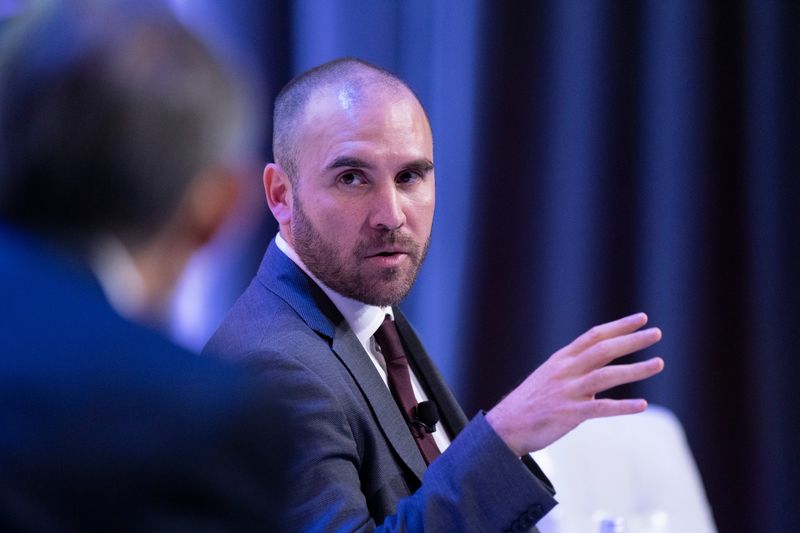Argentina to ‘Take More Time’ Reducing Energy Subsidies

Argentina will reduce energy subsidies for utility bills at a slower pace than anticipated because of higher costs stemming from the impact of Russia’s invasion of Ukraine, Economy Minister Martin Guzman said Saturday.
Reducing energy subsidies is a key part of Argentina’s $44 billion agreement with the International Monetary Fund because it will help the government close its fiscal deficit. Politically, it’s also the most controversial part of the program, exacerbating an internal divide within the ruling coalition.Read More : Energy shift creates opening for 'world's largest batteries' “It’s logical that the government takes more time in the path of reducing subsidies given that energy costs rose,” Guzman said in a radio interview Saturday. Because of the Ukraine impact, “the speed at which you can attack the reduction of subsidies is different.”
Read More: Argentina’s Guzman Says Energy Rally Could Hurt Subsidy Phaseout Guzman didn’t provide a new figure on how much Argentina would cut subsidies for electric and gas bills this year, and he noted that IMF staff have no problem with this change. In the IMF agreement, which was announced soon after the war began, the government committed to reducing energy subsidies by 0.6% of gross domestic product.
IMF officials are close to finishing the first review of Argentina’s new program, a technical step toward unlocking more debt relief for the country, which is refinancing money owed from a previous Fund program granted to the prior government.
The minister also said that the original inflation projection in the IMF deal for this year -- between 38% to 48% annually -- will change once the government updates its budget. Guzman didn’t say when that would happen. He emphasized that monthly inflation in May slowed compared to April, when prices rose 6% from the previous month.
“We’ve been redefining priorities amid an international context that changed a lot,” Guzman said, referring to the IMF program.
Reducing energy subsidies is a key part of Argentina’s $44 billion agreement with the International Monetary Fund because it will help the government close its fiscal deficit. Politically, it’s also the most controversial part of the program, exacerbating an internal divide within the ruling coalition.
Read More: Argentina’s Guzman Says Energy Rally Could Hurt Subsidy Phaseout Guzman didn’t provide a new figure on how much Argentina would cut subsidies for electric and gas bills this year, and he noted that IMF staff have no problem with this change. In the IMF agreement, which was announced soon after the war began, the government committed to reducing energy subsidies by 0.6% of gross domestic product.
IMF officials are close to finishing the first review of Argentina’s new program, a technical step toward unlocking more debt relief for the country, which is refinancing money owed from a previous Fund program granted to the prior government.
The minister also said that the original inflation projection in the IMF deal for this year -- between 38% to 48% annually -- will change once the government updates its budget. Guzman didn’t say when that would happen. He emphasized that monthly inflation in May slowed compared to April, when prices rose 6% from the previous month.
“We’ve been redefining priorities amid an international context that changed a lot,” Guzman said, referring to the IMF program.
Source: www.bloomberg.com
Useful Links:
